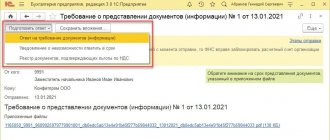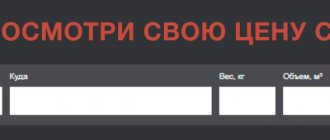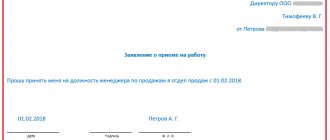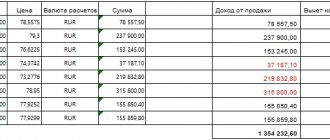What transactions are considered foreign exchange?
For accounting and tax accounting purposes, all transactions that lead to the emergence, change, and repayment of obligations and claims, the value of which is expressed in foreign currency, are considered to be foreign exchange transactions. Federal Law No. 173-FZ of December 10, 2003 “On Currency Regulation and Currency Control” calls the following transactions of resident organizations foreign exchange transactions (Article 1 No. 173-FZ):
- acquisition of currency and foreign securities from a resident, their alienation in favor of the resident, use for payment;
- similar actions committed between a resident and a non-resident;
- import into Russia and export outside its borders of Russian and foreign currency (as well as domestic and foreign securities);
- transfer of rubles and currency (and securities) from an account in Russia to an account abroad and vice versa;
- ruble transfers between residents both from the Russian Federation abroad and vice versa;
- transfers of rubles from account to account - your own or some other resident or non-resident - outside the Russian Federation.
Conversion transactions are also foreign exchange, i.e. exchange transactions in which payments and (or) credits are carried out at the exchange (cross) rate agreed upon with the bank (Article 14 No. 173-FZ). It doesn’t matter what currency the account was originally opened in.
MTS Bank offers profitable conversion transactions: an attractive rate, real-time transactions, no hidden commissions, convenient time for transactions, an individual rate depending on the transaction amount, the possibility of remote transactions and settlements of conversion transactions on counter payments.
Purpose of foreign exchange controls on imports
The “rules of the game” established by the state are necessary to control financial funds going abroad. Currency control agents must monitor the validity of each financial transaction to prevent fictitious money and attempts to withdraw money using fraudulent documents (when goods are paid for but not delivered).
It is for this purpose that if the transaction amount is more than 3 million rubles (for comparison: for export, 6 million rubles are considered the “threshold”), it is necessary to register the contract with an authorized bank. And the bank, in turn, checks the amount sent abroad (and the date of payment) with information from the customs service about the cost of imported goods and the timing of their delivery to Russia. Any discrepancies are grounds for suspicion of violation of currency laws.
The procedure for currency control when importing goods and services is discussed in Central Bank instruction No. 91-I. It includes all import related operations except:
- supplies of goods on leasing terms, if the counterparty is not a resident of the Russian Federation;
- importation of goods under the terms of a construction contract, when the cost of materials is included in the cost of work (that is, services are paid for, but goods are not paid separately);
- financial transactions involving bills of exchange that do not relate to the supply of goods.
Each stage has its own characteristics. Informing about the currency control procedure allows you to avoid making mistakes when conducting foreign trade transactions.
Types of foreign exchange transactions
For the most part, foreign exchange transactions are of a trading nature. This includes all export and import operations that are carried out on the basis of agreements, contracts, agreements that define the terms of cooperation between equal parties.
Settlements for trade foreign exchange transactions are carried out by transferring funds under a contract, international letter of credit or collection.
There are 3 types of currency conversion transactions, they differ in value dates. Operations of conversion of one currency to another are possible with the rate fixed on the day T + 0 (today) and settlements on days called value dates (or settlement dates):
- T + 0 (TOD, today) - fixing the exchange rate today and making payments on the same day;
- T + 1 (TOM, tomorrow) - fixing the exchange rate today and making payments the next day;
- T + 2 (spot/day after tomorrow) - fixing the exchange rate today and making payments in 1 day.
The peculiarity of these operations is that when purchasing and selling the corresponding funds, the currency transaction must be closed no later than on the second (working) day T + 2 (spot/day after tomorrow) from the date of conclusion of the transaction/rate approval. At the same time, transactions of more than 3 days are recognized as transactions with derivative financial instruments (Regulation No. 372-P).
Safety regulations
Let us outline several of the most important boundaries that should not be crossed when carrying out currency transactions. For violation of the regulations for foreign exchange transactions, the modern state - both Russia and any other - punishes strictly, and the bank, if there is suspicion of dishonesty of the transaction, immediately stops the operation.
Foreign exchange transactions between residents are prohibited (for exceptions, see Article 9 No. 173-FZ), but residents (organizations) and non-residents can pay in foreign currency without restrictions (Article 6 No. 173-FZ).
A Russian organization has the right to conduct currency payments (Article 14 No. 173-FZ) through accounts in authorized banks, as well as banks outside Russia, by electronic transfers and, in certain cases, in cash and rubles.
Russian organizations must have at their disposal (and be ready to submit) the following documents (Article 23 No. 173-FZ):
- contracts, agreements, agreements, other similar justifications for carrying out currency transactions;
- confirming the actual fulfillment of the obligation (transfer of goods, performance of work, provision of services);
- confirming natural loss, spoilage, damage, etc. during transportation, acceptance, consideration of claims, settlement of issues of reducing the amount payable in this regard, etc.;
- invoices, bills of exchange and other documents.
To carry out a currency transaction, it is necessary to submit to the authorized bank documentation related to this operation, confirming both the transaction itself and the legitimacy of the activity (registration), clearance of goods (customs) and other documents.
Read more about what an accountant needs to know about currency control in this article.
A resident legal entity is entrusted with the following responsibilities (Article 19 No. 173-FZ):
- receive payment from non-residents for transferred goods (work performed, service provided, information transferred) - with the exception of a number of goods, provided that payments under contracts are made in foreign currency. This requirement also does not apply to the export of non-commodity goods with payment in rubles;
- return (repatriate) foreign currency or rubles paid to non-residents for goods (work, services, etc.) that were not introduced into Russia;
- return loans issued to non-residents.
The law prohibits the use of electronic means of payment (EPP) provided by foreign suppliers without opening a bank account on Russian territory (with the exception of payment cards provided in accordance with the rules of a foreign payment system, Article 12 of the decree of the Law).
MTS Bank offers not just foreign currency accounts for small businesses, but also full, comprehensive services, incl. profitable conversion, free analysis of transactions, free registration of your counterparties, filling out certificates of supporting documents and much more.
Changes in currency legislation: liberalization or new challenges?
2018 is a year of changes in the lives of participants in foreign economic activity:
- amendments were made to Federal Law 173-FZ “On Currency Regulation and Currency Control”;
- amendments were made to the Code of Administrative Offences, providing for personal liability for decision makers;
- A new Bank of Russia instruction No. 181-I came into force.
How should foreign trade participants live in the new conditions? Do these innovations mean that we are moving towards liberalization? Let's figure it out.
Main amendments to 173-FZ
Let's start with Federal Law No. 173-FZ, because it concerns all of us – individuals and citizens of the Russian Federation. From January 1, 2018, all Russian citizens become residents of the Russian Federation, regardless of whether they have another citizenship or place of residence. If we compare it with world practice, then residency is usually determined not by citizenship, but by a person’s permanent place of residence.
If you are a citizen of Russia, but spend a total of more than 183 calendar days a year outside the country and have accounts in foreign banks, then you do not need to submit to the tax authorities a report on the movement of money in accounts opened in banks outside the Russian Federation. However, you, as a resident, are subject to all rights and obligations provided for by 173-FZ. For example, a resident can transfer foreign currency without a limit in the amount from his account opened in a Russian bank to the address of another resident only if the addressee is a close relative (the relationship must be documented).
Two more important changes will come into force on May 14:
- Firstly, banks will be required to refuse illegal currency transactions. If now the bank is still able to carry out such an operation, but at the same time reports the violation to the currency control authorities (the Federal Customs Service of Russia and the Federal Tax Service), then from May 14 the bank is obliged to refuse to carry out an illegal currency transaction;
- secondly, in Article 19 on the repatriation of foreign currency and the currency of the Russian Federation by residents, a new requirement will be added: foreign trade contracts must necessarily indicate the deadlines for the fulfillment of obligations, i.e. the period for receiving proceeds when exporting and the period for returning the advance payment when importing. The phrase “until fulfillment of obligations” will no longer work. What are the consequences of missing deadlines? The bank will not accept the service contract, and you will not be able to pay your partners. It is important to remember that the law obliges you, as residents, to fulfill obligations to repatriate funds not your partners.
Also, the State Duma recently adopted a law that establishes the obligation of residents to repatriate funds in accordance with loan agreements. This means that the loophole in the law that foreign trade participants used to withdraw capital has been eliminated. Residents will be required to provide authorized banks with information about the expected deadlines for non-residents to fulfill their obligations to repay funds in accordance with the terms of loan agreements.
Personal responsibility for decision makers
From May 2022, amendments to Art. 15.25 of the Code of the Russian Federation on Administrative Offences, the purpose of which is to personalize responsibility for illegal currency transactions and non-repatriation of funds. The person making the decision in the organization will be considered an official. He can now be fined for an offense in the amount of twenty to thirty thousand rubles, and in case of a repeated offense he faces disqualification from 6 months to 3 years.
Who is the official in the organization? In most cases, all responsibility falls on the general director as the sole decision maker in accordance with the organization's Charter. Therefore, we recommend that you study the accounting policies of your company: if, in accordance with the structure of your business, the decision on who to enter into contracts with and determine payment terms is made by the commercial director, indicate this in the accounting policy just in case.
New Bank of Russia instruction 181-I
And finally, about the new Bank of Russia instruction No. 181-I. It replaced instruction 138-I and came into effect on March 1, 2022. The key innovation of this instruction is the abolition of transaction passports and certificates of currency transactions. Now the only form of accounting for currency transactions is a certificate of supporting documents. There are also new requirements for accounting for foreign trade contracts. Let's take a closer look at how the accounting for contracts and transactions on them has changed.
So, the transaction passport form was indeed cancelled, but the requirement to record contracts remained in force. All transaction passports that existed before March 1, 2022 are considered closed, and contracts are considered registered with a unique contract number (UCN). This unique number is the transaction passport number; its structure has remained unchanged.
The new contract requirements are a threshold for the total amount of obligations under each contract. Previously, all contracts were recalculated in value into US dollars at the exchange rate of the Central Bank of the Russian Federation on the date of their entry into force in order to understand whether it was necessary to open a transaction passport. The process has not changed, only now the conversion is done in Russian rubles:
| Contract type | Contract amount | A comment |
| all contracts | no more than 200,000 rub. | The operation is carried out without documents; nothing needs to be provided for currency control |
| import contract (goods/services) and loan agreements | less than 3,000,000 rub. | The contract, which is the basis, must be submitted to the bank at the time of the transaction. |
| import contract (goods/services) and loan agreements | more than 3,000,000 rub. | The contract must be registered with the bank, assigning the UNK before the operation or customs clearance. To do this, send the contract to the bank and no later than the next business day you will receive the Tax Code. |
| export contract (goods/services) | less than 6,000,000 rub. | The contract must be submitted to the bank at the time of the transaction or no later than 15 working days after the money is credited from a non-resident |
You probably noticed that the threshold for export contracts has been doubled. This should have a positive impact on small business exporters. We do not recommend using a “gift for exporters” (first money - then documents). There is a risk of forgetting about 15 working days, and this will be a reason to pay a fine, the amount of which can reach 50,000 rubles.
What else has changed with the new instructions:
- such concepts as “banking control statement”, “certificate of supporting documents” have not disappeared or changed, but an addition has appeared: a new column 12 has been added to the certificate to correct the data;
- re-registration and closing of the transaction passport is now called “amending section I of the bank control statement” and “deregistration of the contract,” respectively. The grounds and documents remained the same, and on the part of residents there were also changes in terms of timing. However, banks now have not three, but two working days for processing;
- It has become easier to transfer a service contract to another bank: as before, you need to deregister the contract with the old bank, bring it to the new bank and inform the UNC. But the new bank will independently request all the necessary information from the Central Bank of the Russian Federation (including the bank control statement).
At the beginning of the article, we said that the certificate of currency transaction was cancelled. But what came in return? Residents, as before, must provide the bank with information about the foreign exchange transaction - a link to the contract or the Tax Code (if available) and the expected terms (for imports). The bank must now determine the code for the type of currency transaction independently based on the documents and information it has. This is not difficult to do if the contract specifies a single payment method, but if there is a mixed type of payment, the bank may require additional information from you. And according to Art. 23 173-FZ, the bank has the right to request any information related to the currency transaction being conducted. It is important to understand that all responsibility for correct accounting and, as a result, compliance with the requirements of the law on the repatriation of funds rests with the participant in foreign trade activities. Therefore, we recommend indicating the most complete and reliable information when making payments, including the code of the type of currency transaction.
Now let's summarize. Foreign economic activity is becoming more transparent: banks are now required to send information about violations of foreign exchange legislation by clients every ten days (until March 1, 2018 - monthly) and, together with information about the assignment of the Tax Code, amendments and deregistration, send scanned copies of contracts and additional agreements to the Federal Customs Service of Russia . For participants in foreign trade activities, the process of processing transactions is simplified - document forms have been canceled and the deadlines for registration by banks have been reduced. At the same time, new requirements are being introduced that tighten control over the withdrawal of capital. Under these conditions, it is important to find a partner who will always be there in a new situation and warn you about a wrong step. First of all, your bank should become such a partner. Make sure that your company can count not only on the funds transfer service, but also on assistance in accounting for currency transactions and contracts and comprehensive consulting support on foreign trade issues.
How are foreign exchange transactions reflected in accounting?
In accounting, currency transactions are reflected in Russian rubles. To do this, amounts in foreign currency must be recalculated in them. If the transaction amount is expressed in foreign currency, and according to the terms of the agreement, payment must be made in foreign currency, then additional entries will need to be made in foreign currency (clauses 4, 7, 20 PBU 3/2006 “Accounting for assets and liabilities whose value is expressed in foreign currency").
When recalculating the amount of a currency transaction into rubles , as a general rule, the official exchange rate to the ruble is used, established by the Central Bank of the Russian Federation on the date:
- transfers (receipts) of funds (when making an advance, prepayment, deposit);
- completing a currency transaction - from the remaining amount (clauses 5-6, 9 PBU 3/2006).
A different rate may be agreed upon in the contract. The amounts of obligations and claims that arose as a result of a currency transaction are subject to revaluation. The exception is obligations and claims arising as a result of the transfer of an advance payment, deposit, or other form of advance payment (clauses 7, 10 of PBU 3/2006).
To revaluate foreign currency obligations (claims) in accounting for each reporting date and date of repayment (including partial), amounts expressed in foreign currency are subject to recalculation into Russian rubles at the rate of the Central Bank of the Russian Federation on the date of revaluation (unless a different rate is established by the agreement , the price of which is expressed in USD, paragraphs 5-8 PBU 3/2006).
MTS Bank offers modern tools for settlements with foreign partners: account opening in one day, automatic notification of tax authorities. Servicing a foreign currency account is free, low transfer fees. Convenient currency payments day after day. Additionally, the bank provides the opportunity to pay with foreign counterparties using international letters of credit.
Registration of a contract with a bank
Regardless of the type of currency used in contracts related to the import of goods or services, all payments are made through Russian banks. At the same time, contracts worth more than 3 million rubles are subject to mandatory registration. The equivalent in rubles is calculated based on the official exchange rate of the Central Bank on the day of submission of documents.
The procedure takes 1 business day - and another day is provided by law for the bank to notify the importer of the unique number assigned to the contract.
The following types of contracts are registered:
- any foreign trade contracts related to the import of goods;
- contracts for the performance of work or provision of services, including the transfer of information and the fruits of intellectual labor;
- agreements for receiving or issuing credits and loans;
- sale (or provision of sales services) abroad of fuels and lubricants, food and other goods (except for equipment and spare parts for it) to ensure the operability of any vehicles and their crews;
- transfer of property for rent.
It is important that the contract clearly states the amount of obligations, as well as the timing of their repayment. For certain types of contracts, the amount of obligations may be indicated taking into account agency and commission fees, reimbursable expenses, as well as third-party services (for example, payment to a cleaning service under a construction contract).
Documents for registering a contract
If exporters are allowed to submit a contract extract to the bank first, and the document itself within 15 days, then importers are required to immediately present the contract. An application must be submitted along with it, indicating:
- type of contract, its details (date of conclusion, number);
- contract amount indicating the name of the currency;
- deadlines for fulfilling obligations;
- details of the foreign counterparty, including the full name of the company and indication of the country of registration.
It is allowed to submit a draft contract (that is, an official document that has not yet been signed by the parties) to the bank. However, by law, the importer is required to submit the original contract with all the necessary signatures and seals within 15 days.
Important! If the document was drawn up in a foreign language, it is necessary to attach an officially certified translation (by a notary) of each page. If it is not possible to bring the original document to the bank, you can present a copy. In this case, each sheet is certified by the signature of the responsible person, after which the contract is stitched and certified again - but on the last sheet (indicating the total number of pages).
So that bank employees can verify the authenticity of signatures and seals, you should also present a signature card with samples of the strokes of all responsible persons.
Certificate of supporting documents
The procedure for completing this paper is provided for in Appendix No. 6 to the Central Bank Instruction No. 181-I dated August 16, 2022. It stipulates that when importing goods into the territory of the Russian Federation, transport, shipping or accompanying papers are considered supporting documents.
A certificate of supporting documents is not needed if:
- the contract provides for the transfer of property for rent, not ownership;
- we are talking about the supply of goods under leasing terms;
- the contract was concluded for the supply of communication services or insurance;
- the contract is deregistered due to the assignment of claims to another resident.
The specific list of supporting documents can be clarified at the authorized bank.
How currency payments are reflected in reporting
The reporting reflects only ruble equivalents of the value of assets, liabilities and inventories, including those located or used abroad of the Russian Federation.
The financial statements reflect:
- the cost values indicated in this accounting;
- the amount of exchange rate differences resulting from the recalculation of the currency value of assets and liabilities requiring payment in foreign currency;
- currency value of assets and liabilities, settlement for which will be carried out in rubles;
- exchange rate differences credited to accounting accounts in which financial results are not taken into account.
The reporting reflects the ruble exchange rate established by the Central Bank of the Russian Federation as of the reporting date or another rate established by law or agreement.
If the total amount of funds credited to electronic means of payment for the reporting year is greater than or equal to an amount equivalent to 600,000 rubles, such transfers must be reported to the tax authority by submitting a Report on the Flow of Cash and Other Financial Assets (approved by resolution of the Government of the Russian Federation dated December 28, 2005 No. 819) according to the rules approved by the same document.
Sanctions for violation of currency control
The legislation provides for four types of violations for which sanctions may be imposed (including imprisonment):
- deviation from the deadlines established by law for submitting reports and notifications on foreign trade transactions to regulatory authorities;
- falsification of information contained in documents, filling errors;
- failure to comply with the deadlines for the transfer of funds specified in the contract, as well as violation of the terms of delivery of goods under import contracts;
- concealment of income, transfer of proceeds to the accounts of foreign countries (ignoring the requirements for repatriation of financial assets).
For violation of the deadlines for transferring money under the contract, the amount of fines can be up to 100% of the contract value. Similar sanctions will have to be paid if the importer transferred money (including as an advance), but delivery of the goods never occurred - in this case, the money must be returned as soon as possible to avoid suspicion of illegal currency transactions.
Violation of deadlines for submitting reporting documents (including to tax authorities) entails fines of up to 100,000 rubles (for legal entities), for repeated violations - up to 600,000 rubles.
If the transaction amount exceeded 9 million rubles, then in addition to civil and administrative liability, the importer may also face criminal charges. For violations of currency control, the court may impose a fine of up to 1 million rubles, forced labor for up to 5 years, or imprisonment for up to 4 years.
Tax accounting
For tax accounting purposes, currency transactions are also recalculated into rubles (Articles 271, 272 of the Tax Code of the Russian Federation). In this case, you need to use the rates of the Central Bank of the Russian Federation or as of the date:
- transfer (receipt) of funds on account of advance payment (deposit, advance), or
- carrying out a currency transaction - for amounts in excess of those paid in advance.
As a general rule, the exchange rate of the Central Bank of the Russian Federation is applied, unless otherwise agreed by the parties in the agreement, the price of which is expressed in monetary units. If subsequently, as a result of the transaction in foreign currency, obligations (claims) arise, then they are subject to regular revaluation until 100% repayment.
The exception is obligations (claims) resulting from the transfer of an advance payment (deposit, advance payment). Revaluation is carried out at the end of each month and on the date of repayment (partial repayment); the amounts of obligations (claims) expressed in foreign currency are converted into rubles at the exchange rate of the Central Bank of the Russian Federation on the date of revaluation.
Otherwise may be established by agreement (Articles 271, 272 of the Tax Code of the Russian Federation). “Tax” exchange rate differences are subject to inclusion in non-operating income (expenses), except for cases expressly provided for by the Tax Code of the Russian Federation (clause 11) of Art. 250, sub. 5 p. 1 art. 265, sub. 7 paragraph 4 art. 271, sub. 6 paragraph 7 art. 272).







